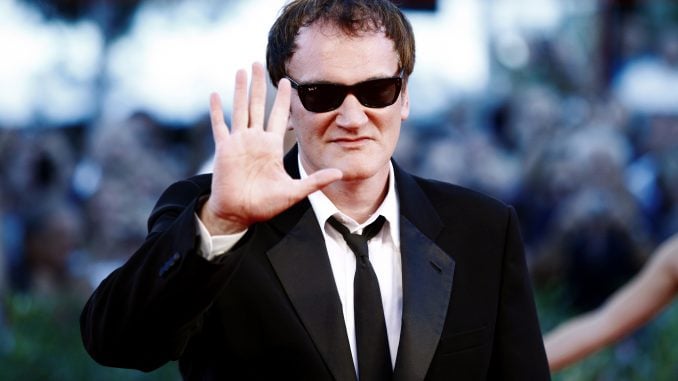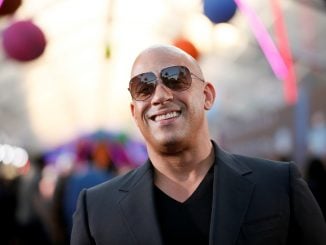
LOS ANGELES It happens often enough. A great filmmaker announces his next project and you feel a frisson of electricity, a little charge of “Oh, man, that sounds amazing.” I felt it when I heard that Damien Chazelle would follow “La La Land” with an epic drama about Neil Armstrong and the Apollo missions (call it “The Right Stuff Shoots the Moon”).
Or when it was revealed, earlier this week, that Barry Jenkins, coming off “Moonlight,” would realize his long-gestating dream of adapting James Baldwin’s 1974 Harlem-set novel “If Beale Street Could Talk.” But it isn’t often it’s almost never that the mere announcement of a director’s upcoming film carries a jolt of meaning.
On Wednesday, it was revealed that Quentin Tarantino’s next movie would be a dramatization of the events surrounding the Manson family murders, in the summer of 1969. To me, that sounds like the first Tarantino film in a long while that has the makings of something revolutionary. Tarantino has never before made a film based on actual events (unless you count World War II and even there he changed the ending). But it’s not only the docudrama aspect that’s novel, it’s that a movie about Charles Manson and his “family” of unhinged hippie wastrels almost needs to be a fever dream rooted in the real world. And that’s a place that Tarantino’s pop-is-all/all-is-pop esthetic has come to have an increasingly tenuous relationship with.
Anyone who has bothered to think much about Charles Manson probably falls into one of two camps. Either you believe that Manson and his followers were depraved sick puppies whose violence was too gruesome to be connected to anything but its own insanity, and that’s all there was to it; or you think that the Manson murders, unspeakable as they were, created a staggering mythology of American evil that has only grown with the decades.
The Manson murders are always talked about, along with Altamont, as the shock wave that crashed down on the ’60s. At this point, though, who gives a rat’s behind about the implosion of the counterculture? The Manson murders were about the destruction of something much larger than the 1960s; they were about the destruction of empathy. As in: How could “Charlie’s girls” have done it? How could they have wielded those knives? In that way? How could even the craziest cult thinking and wildest binges have led them to go over that edge?
There are many aspects of the Manson saga that place it right in Tarantino’s wheelhouse. The most obvious is its ultraviolence. One of the reasons we have films as hypnotic in their sadistic flamboyance as “A Clockwork Orange” or “Pulp Fiction” is that Charles Manson singed that level of mayhem into our consciousness. Yet the key overlap may be that Manson himself became a part of pop culture. With his derelict snarl and demon hypnotist’s stare, and a swastika carved into his forehead (an act that Tarantino mimicked in “Inglourious Basterds”), Manson fashioned himself into a larger-than-life figure a hippie-Christ garbage devil, a messiah of hate.
From the outset, he longed to fuse with pop culture, to magnify his rage in its sound waves. And that’s just what he did through his friendship with Dennis Wilson of the Beach Boys, which led the group to record one of Manson’s songs (Guns N’ Roses did one, too, releasing it as an unlisted track on 1993’s “The Spaghetti Incident”), or through his infamous psychotic belief that the Beatles were calling out to him, sending him messages through their music, especially that proto-punk bad-vibe apocalypse “Helter Skelter.” There is also the whole race thing: Charlie’s fetishization of what he saw as the insurrectionary force of black culture, which finds an echo in Tarantino’s. The fact that Manson’s most famous victim, Sharon Tate, was the wife of Roman Polanski, director of creepy nightmare thrillers, only added however speciously to the media karma of his crimes.
In the articles, thus far, about Tarantino’s film, there has been the usual frantic, and weakly sourced, speculation about big-name actors being offered this or that role like the rumor (completely unconfirmed) that one highly popular actress might be offered the role of Sharon Tate, or that Brad Pitt is being talked about to play prosecutor Vincent Bugliosi. Yet apart from the casting of Charlie himself, my first question wouldn’t even be about Sharon Tate or Vincent Bugliosi. It would be: Who’s going to play Susan Atkins? Who’s going to show the audience how a “normal” 21-year-old middle-class woman descends into savagery as a twisted expression of the “if it feels good do it!” era?
Of course, the person who’s got to show us that if the film is going to work is Tarantino himself. And my point is that, if he brings that off, it will mark a seismic change in the kind of movie he’s been making. In 25 years, Quentin Tarantino has directed just nine features (according to him, it’s eight the difference being whether you count “Kill Bill: Volume 1” and “Kill Bill: Volume 2” as one film or two), and while I consider myself a fan of almost every one of them, I’d be a dishonest critic, if I denied that even as a QT believer, there’s a part of me that rejects the trajectory of his career: the evolution from the close-to-the-bone humanistic pop drama of “Reservoir Dogs” and “Pulp Fiction” to the more grandiose, stylized quality of almost everything that has come afterward.
For the record: I adore some of those films. “Death Proof” is a mesmerizing action allegory that charts, and celebrates, the rise of a new kind of feminine power in the universe, and “Inglourious Basterds,” which to me is Tarantino’s greatest achievement post-“Pulp,” is a movie that crossbreeds the narrative magic of Old Hollywood with an outrageous and voluble yarn-spinning joy. It may trash history, but part of its joke is: Which “classic” WWII movie didn’t?
And yet, when I look back over Quentin’s career, there’s a little voice inside me that has never stopped murmuring: Why are his first two movies his best two? I know a lot of people feel differently (and I’m sorry, but I think “Jackie Brown” is a bit boring), yet with “Reservoir Dogs” and “Pulp Fiction,” Tarantino made movies that were extravagant jukebox operas of desperado passion that kept touching down in reality. And that’s what people loved about them that they struck that balance, that they took place in criminal counter-worlds that never stopped mirroring our own.
I felt the first ashy, depressing strains of Tarantino burnout when I saw “The Hateful Eight,” a convoluted conundrum of a movie that with its single set photographed in 70mm, played like the world’s most lavishly overblown episode of “Gunsmoke” crossed with “Ten Little Indians.” It was full of tricks and gambits and reversals, yet on some fundamental level it was a Tarantino film that was more about itself and nothing but itself than any Tarantino movie ever had been. It was joyless and misanthropic and oppressive. It signaled, to me, that Quentin might be starting to run on empty.
To a lot of people, a Manson family drama may not sound much more “humane,” yet Tarantino, by the description his own representatives put out, wants to tell a story about how the age of free love morphed into something horrific a transformation that still has disturbing implications today. Will he play it straight or Tarantino-ize it? My instinct (or maybe it’s just a hope) is that Tarantino can’t reduce the Manson story to another of his concoctions. I mean, he can, of course, but it wouldn’t feel right, and it wouldn’t be inspiring cinema.
And who will play Charlie? There is already an actor who has done it brilliantly, and I’m not talking about Steve Railsback in the 1976 TV version of “Helter Skelter,” though he (and the movie) are famously good. I’m referring to Jeremy Davies in the scandalously underpraised 2004 TV remake of “Helter Skelter.” He’s the one actor who has captured Manson’s danger, his wackadoo hipster snake-charmer charisma. Davies seethed like a wasp with a broken stinger, playing Manson as just who he was: the first rock star of homicide. That’s what the Manson story is really about how in a society of debased celebrity, a Satanic guru with a death wish could rule. If Quentin Tarantino, on the 50th anniversary of the Manson cataclysm (the film starts shooting next year, for what will be a 2019 or end-of-2018 release), can uncork the full madness of that time, and why it still speaks to us, he may liberate himself as an artist, replacing the more calculated audacity of his recent work with the true audacity he owes himself.




